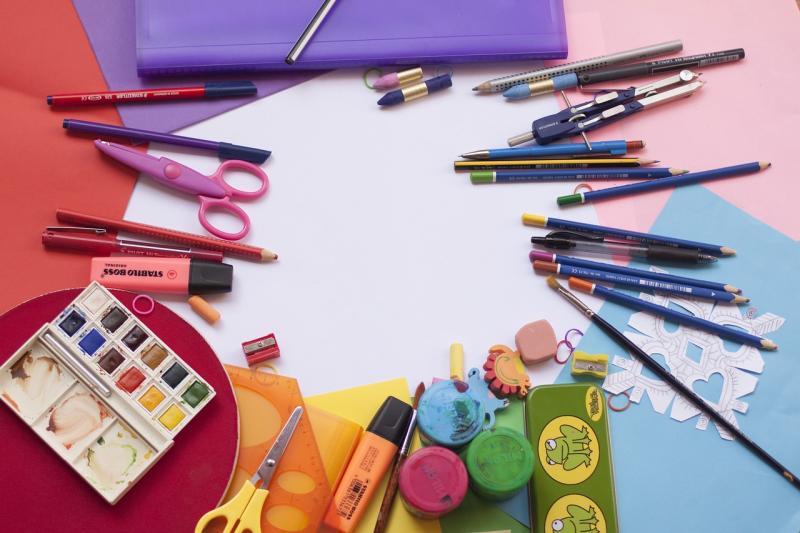The Power of Play: How Nurseries Can Boost Early Childhood Development

Early childhood is a crucial period of growth and development, and research consistently shows that the experiences children have during these years can significantly influence their future learning, behavior, and overall well-being. Among the most effective ways to nurture this development is through play. For young children, play is not just a way to pass the time—it is an essential tool for learning and growth. In nurseries, where children are introduced to structured play and early education, the benefits are numerous.
The Role of Play in Early Childhood Development
Play is often referred to as "the work of children." It is through play that children develop essential cognitive, social, emotional, and physical skills that form the foundation for lifelong learning. Play is not only about entertainment; it’s a natural way for children to explore the world around them, experiment with ideas, and develop problem-solving abilities.
In a nursery setting, children engage in various types of play, each contributing to their growth in different ways. For example, imaginative play helps children develop creativity, social skills, and empathy, while physical play supports motor skills and coordination. By combining these types of play in a structured yet flexible environment, nurseries provide opportunities for comprehensive development. In this article, we explore how nurseries, like The Study Nursery, harness the power of play to boost early childhood development.
How Nurseries Foster Play-Based Learning
Rather than relying solely on traditional educational methods, these nurseries create environments where children can explore, experiment, and learn through activities that spark their curiosity and interest.
Here’s how nurseries effectively use play to support children’s development:
1. Cognitive Development Through Problem-Solving and Exploration
Play is a natural way for children to develop critical thinking skills. When children engage in activities like building with blocks, completing puzzles, or engaging in role-playing games, they are practicing problem-solving and learning how to think creatively. These activities encourage children to think logically, explore cause-and-effect relationships, and develop the cognitive skills they need for more complex learning in the future.
Nurseries like The Study Nursery often integrate learning materials that encourage exploration, such as interactive games, science experiments, and creative arts. By engaging with these materials in a play-based context, children build important cognitive abilities without even realizing it.
2. Social and Emotional Growth
Social development is another significant benefit of play. When children interact with peers during play, they learn vital social skills such as sharing, taking turns, negotiating, and resolving conflicts. These social interactions also help children develop empathy as they begin to understand the perspectives and feelings of others.
Furthermore, play allows children to express their emotions in a safe and supportive environment. Whether through dramatic play, such as pretending to be a doctor or a teacher, or playing with peers, children learn how to manage their emotions, work through frustrations, and build resilience. These emotional experiences are essential for developing emotional intelligence and coping strategies for future challenges.
3. Physical Development
Physical play, such as running, jumping, climbing, and dancing, is critical for developing gross motor skills and coordination. In nurseries, children often have access to outdoor play areas and age-appropriate physical activities that help them develop muscle strength, balance, and coordination. These activities also support fine motor skills, as children manipulate smaller objects during crafts, drawing, or building.
Active play fosters physical health and well-being, encouraging children to develop a positive relationship with exercise and physical activity from a young age. Nurseries that prioritize physical play create opportunities for children to develop strength, agility, and a lifelong love of movement.
4. Language Development
Play is an excellent vehicle for enhancing language skills. During imaginative play, children use language to describe actions, negotiate with peers, and narrate stories. This helps expand their vocabulary and improve their communication skills. For example, when children engage in pretend play—such as setting up a shop or acting out a scene from a favorite book—they practice speaking, listening, and understanding social cues.
Nurseries often create rich language environments where children are encouraged to talk, sing, and read throughout the day. This consistent verbal interaction, coupled with opportunities for play, promotes both receptive and expressive language development.
5. Encouraging Independence and Confidence
Play-based learning environments encourage children to make decisions, solve problems independently, and take ownership of their learning. In nurseries, children often choose their activities and participate in decision-making, which builds self-confidence and autonomy. The sense of accomplishment that comes from completing a task—whether it’s finishing a puzzle or creating a piece of art—boosts self-esteem and motivates children to continue exploring and learning.
As children develop the ability to make choices and navigate challenges on their own, they also build a sense of self-efficacy, which is crucial for later success in both academic and social settings.
Creating a Balanced Approach to Learning and Play
While play is essential for development, it’s important to strike a balance between structured learning and free play. Nursery environments like The Study Nursery typically offer a blend of both. Structured activities, such as guided lessons, group projects, and themed learning sessions, are designed to complement free play, allowing children to learn new concepts in a way that aligns with their interests and developmental needs. Many nursery schools in New Malden are embracing play-based learning as a core part of their curriculum, recognizing its profound impact on child development.
Nursery schools often use play to reinforce learning in other subjects, such as math, literacy, and science. For example, children might count and sort objects during playtime to reinforce early math skills or create stories together to enhance their literacy development. By embedding learning in play, children can grasp complex concepts in a natural, engaging manner.
Conclusion: The Lasting Impact of Play-Based Learning
The power of play in early childhood development cannot be overstated. Play is not just a fun activity for children—it is a vital tool for building the cognitive, social, emotional, and physical skills that form the foundation for lifelong learning. Nurseries that prioritize play-based learning, like The Study Nursery, provide an enriching environment where children can develop in all areas while having fun and staying engaged.
For parents considering nursery education for their child, choosing a school that understands the importance of play in early childhood development is a step toward ensuring a positive, well-rounded educational experience. By encouraging children to explore, create, and learn through play, nurseries can help lay the groundwork for a successful and fulfilling educational journey.


Comments (1)
Deepti G.7
Creating Impact through Words
Amazing information on early childhood, helpful insights, thanks!